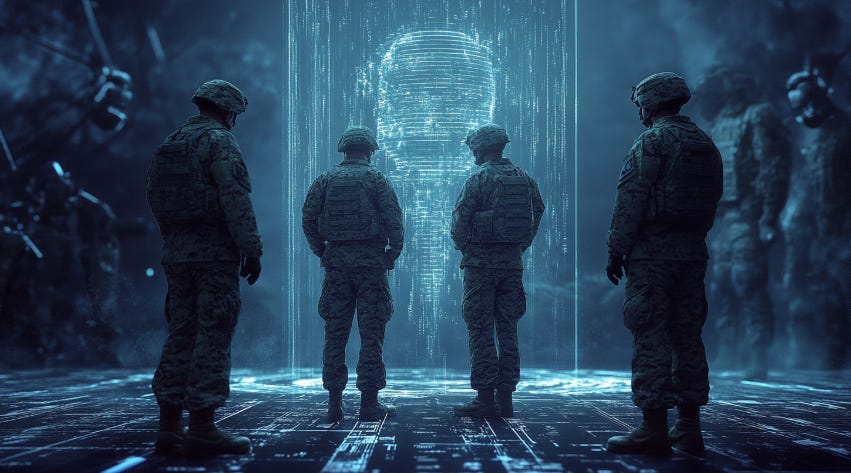⚔️🎇 Why the US military should plan for human-level AI
The Pentagon must be ready for anything, even as Silicon Valley keeps it foot on the pedal
My fellow pro-growth Up Wingers,
When German physicists split the atom in 1938, the historic event’s military implications were crystal clear to scientists across the Atlantic. That moment of awareness and reaction is depicted in the 2023 film Oppenheimer. When the stunning news reaches Robert Oppenheimer and his fellow physicists at the University of California, Berkeley, they immediately grasp the breakthrough’s enormous potential as the basis for a devastating superweapon:
Ernest Lawrence (Josh Hartnett): A chain reaction. You’re thinking what I’m thinking.
J. Robert Oppenheimer (Cillian Murphy): You, me, and every physicist around the world who’s seen the news.
Luis Walter Alvarez (Alex Wolff ): What? What’re we all thinking?
Oppenheimer: A bomb, Alvarez. A bomb.
The same certainty doesn’t yet apply to artificial intelligence. Though some pundits clamor for a Manhattan Project to beat China in developing human-level AI — and, of course, AI-enhanced and created weapons — they overlook a crucial difference: Nuclear fission offered an obvious path to unprecedented destructive power, while the military potential of today's AI advances remains murky.
Keep reading with a 7-day free trial
Subscribe to Faster, Please! to keep reading this post and get 7 days of free access to the full post archives.




